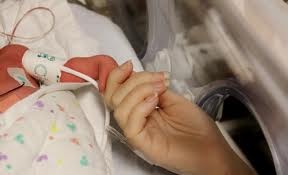GBS IN PREGNANCY (GROUP B STREPTOCOCCUS)
Group B Streptococcus or GBS as it is more commonly known, is recognised by the Royal College of Obstetricians and Gynaecologists as the UK's most common cause of life-threatening infection in the newborn. (RCOG, 2003) and the number is on the rise.
Group B Streptococcus or GBS as it is more commonly known, is recognised by the Royal College of Obstetricians and Gynaecologists as the UK's most common cause of life-threatening infection in the newborn. (RCOG, 2003) and the number is on the rise.
GBS is a bacteria which is often found living harmlessly in the vaginal and gastrointestinal tracts of up to 50% of healthy women.
It is a normal bacteria which doesn't cause any symptoms in the mother and even if you were tested in a previous pregnancy and found to be a carrier, it does not necessarily mean that you will be a carrier in any subsequent pregnancies.
It is important to realise that out of 50% of babies born to mothers carrying GBS, that pick up the micro-organism, approximately only 2% will then go on to develop the GBS infection.
Certain situations can increase the risk of a baby developing GBS infection- these include;
1. Premature labour.
2. Prolonged Rupture of Membranes (where the waters break more than 18 hours before labour begins)
3. Having a high temperature during labour.
4. Having a positive swab or urine sample.
5. If a previous baby went on to develop severe GBS infection.
It is often discovered during routine ante-natal appointments where urine samples are sent off to the labs for further testing or if you have a vaginal or rectal swab during your pregnancy.
If it is picked up on a urine sample- you should be offered antibiotics during your pregnancy and intravenously during labour.
GBS in pregnancy can cause stillbirth, premature birth and even late miscarriage therefore it is important to be treated if found.
GBS can be divided into two categories, Early and Late.
Early GBS disease usually appears within 24 hours of delivery and for up to one week afterwards. This category is the most common and can cause breathing problems such as pneumonia. It can also cause meningitis although this is relatively rare.
Fortunately, most of these babies make a full recovery.
Late GBS disease usually appears between one week and three months after the birth and is more likely to cause meningitis. This can cause scepticaemia (blood poisoning), meningitis or pneumonia or have long lasting affects like blindness, deafness, or cerebral palsy.
If you are found to be a carrier of the GBS bacteria, you should be offered intravenous antibiotics in labour.
It is important to know that the antibiotics should have been given at least four hours prior to the delivery of the baby for them to have the desired effect although they are not useful until labour has started. Unfortunately, if it is not your first baby, you may deliver before the four hours are up. If this happens, your baby will be given intravenous antibiotics. How long for depends on your unit and the latest guidelines but you will be counselled.
You should be aware that your baby is more at risk of developing the infection when your waters break , therefore if you are a known carrier and suspect that your waters may have broken-you should contact your midwife and attend the hospital for confirmation. If it is confirmed, you should be offered induction of labour and iv antibiotics to reduce the risk of transmission.
There is talk that there should be universal testing. But at present, the National Screening Committee (NSC) is currently reviewing the evidence.
For further reading on GBS, please visit
http://www.gbss.org.uk/
Please feel free to ask any questions relating to this any or any of my previous blogs. You can do this by leaving a comment on this blog or contacting me through my " confidential 1 to 1 live web chat" at http://www.justbambinos.co.uk/
I will be available for online midwifery advice chats most evenings from 8pm (GMT) so click on the icon on the home page to access the web chat and 'Ask the Midwife'.
If you enjoy what you read on these blogs please like our facebook page and follow us on Twitter or email us at justbambinos@gmail.com
Mandy B



No comments:
Post a Comment
Many thanks for your coment